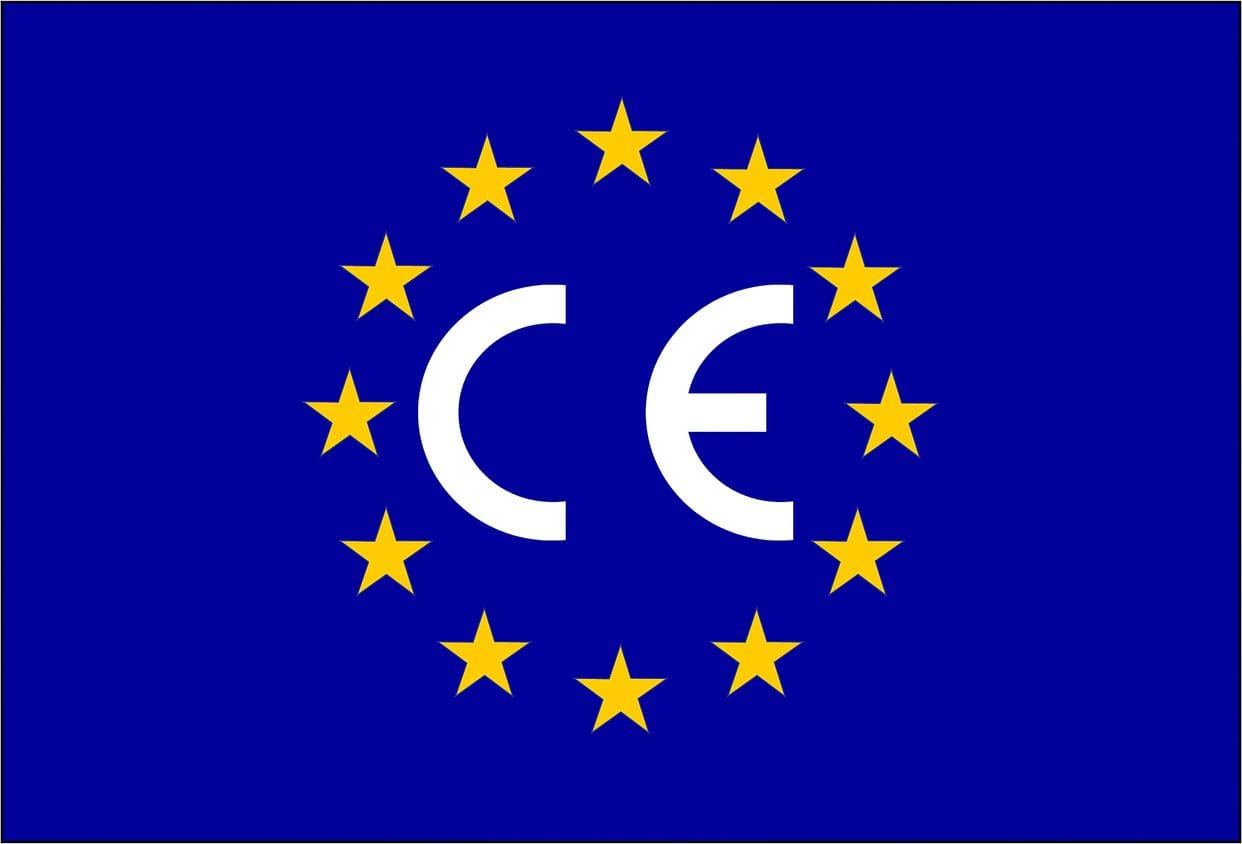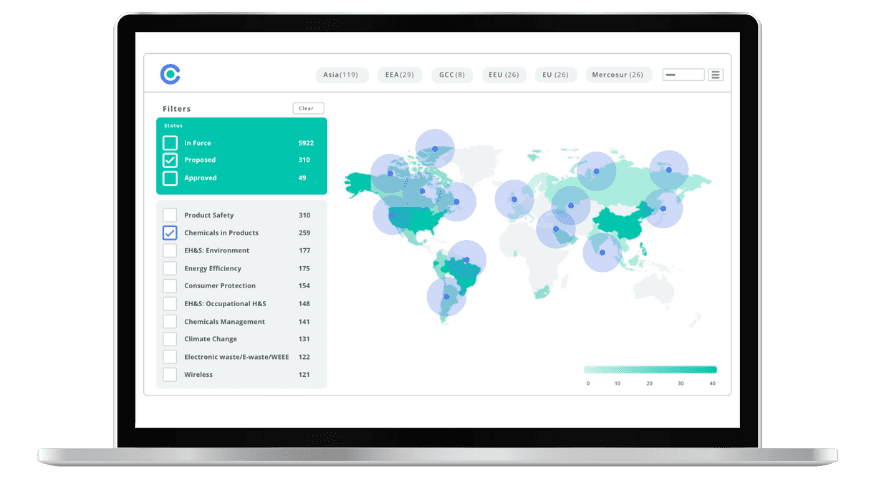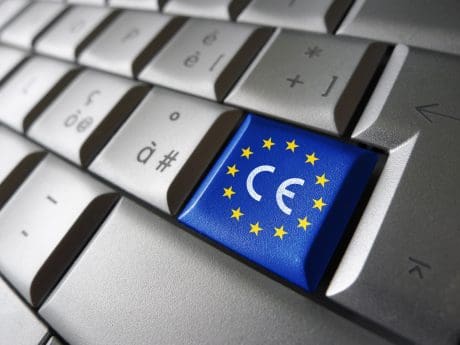
UK Publishes Draft Regulations to Extend CE Recognition Indefinitely and announces plans to Introduce E-labelling

This blog was originally posted on 2nd February, 2024. Further regulatory developments may have occurred after publication. To keep up-to-date with the latest compliance news, sign up to our newsletter.
AUTHORED BY SIDDHANT SHAHANE , REGULATORY COMPLIANCE SPECIALIST, COMPLIANCE & RISKS
Introduction
January 2024 has certainly been a busy month for the UK Department for Business and Trade (DBT).
Flashback to August 2023 the UK Department for Business and Trade (DBT) had announced plans to extend CE recognition indefinitely for certain products.
Forward to the 26 January 2024, the UK Department for Business and Trade (DBT) notified the WTO of the draft Product Safety and Metrology etc. (Amendment) Regulations 2024 to provide businesses with the flexibility to continue to place goods that meet current EU requirements, including the CE marking, on the market in Great Britain.
This approach will apply to most manufactured products and cover 21 product regulations.
Draft Product Safety and Metrology etc. (Amendment) Regulations 2024
This legislation relates to consumer safety and health and safety and sets out the requirements that products must meet in order to be placed on the market in Great Britain.
The amendments made to each of these pieces of legislation revoke provision in each piece of legislation that sets out the expiry of provisions which themselves allow for obligations to be met in the legislation as it applies in Great Britain to be met by complying with requirements of the corresponding EU law.
With the exception of the Measuring Container Bottles (EEC Requirements) Regulations 1977, they replace this provision with a provision allowing for relevant economic operators to meet any conformity assessment or testing requirements in the legislation as it applies in Great Britain to be met by complying with the corresponding EU conformity assessment or testing requirements.
This legislation will support economic growth and provide businesses with greater flexibility to continue to place products on the market in Great Britain using either CE or UKCA Marking after 31 December 2024. In Northern Ireland, the CE mark is and will remain recognised, pursuant to the Windsor Framework.
The continued recognition of current EU requirements, including the CE and reversed epsilon markings, will apply to 21 product regulations, including the 18 product regulations owned by the Department of Business and Trade, previously announced on 1 August 2023.
Following feedback from industry, the UK government are also continuing CE recognition for a further three regulations, which will now include the Ecodesign for Energy-Related Products 2010 Regulations (Department for Energy Security and Net Zero), the Explosives Regulations 2014 (Department for Work and Pensions (Health and Safety Executive)), and the Restriction of the Use of Certain Hazardous Substances in Electrical and Electronic Equipment Regulations 2012 (Department for Environment, Food & Rural Affairs).
RoHS two-part approach
The Restriction of the Use of Certain Hazardous Substances in Electrical and Electronic Equipment Regulations 2012, is included within this announcement, however, the UK government are taking a two-part approach given the role of exemptions in these Regulations.
Where products meet the maximum concentration values set out in Annex II to the EU RoHS Directive (2011/65/EU), the UK government will continue to recognise current EU regulations and CE marking.
Where a product relies on an exemption, the UK government will also continue to recognise current EU regulations and CE marking, provided there is an equivalent exemption under the Restriction of the Use of Certain Hazardous Substances in Electrical and Electronic Equipment Regulations 2012.
Exempted Products
The government is taking a tailored approach to support the interests of British businesses and ensure consumers are protected, taking account of the specialist nature of each regulation. This means not all product regulations covered by the CE or UKCA regime will be included in this legislation.
Separate approaches apply to products covered by: the Medical Devices Regulations, the Construction Products Regulations, the Cableway Installations Regulations, the Carriage of Dangerous Goods and Use of Transportable Pressure Equipment (Amendment) Regulations, the Railways (Interoperability) Regulations, Unmanned Aircraft Systems (UAS) Regulations, and the Merchant Shipping (Marine Equipment) Regulations.
The Road Ahead
The UK government will continue to monitor any regulatory changes the EU may make in future, and will continue to work with industry to ensure UK regulatory policy reflects the interests of British businesses and consumers.
The UK government recognises the importance of being able to mandate UKCA marking. They may choose to do this in the future for certain regulations where this is in the interests of British businesses, consumer safety, or environmental protection.
The government also recognises the important role UK Conformity Assessment Bodies play in ensuring the compliance of goods to UKCA requirements and their role in supporting innovation.
The government continue to work with the UK Accreditation Service and industry to monitor capacity of the conformity assessment market.
This Draft Regulation is proposed to be adopted in April 2024 and enter into force on 1 October 2024.
Digital Labelling for Businesses
In August 2023, the UK Department for Business & Trade published a Consultation Document on Product Safety Review, aside from other proposals it also included introducing voluntary e-labelling.
Now on 24 January 2024, in response to feedback from businesses through engagement and the Product Safety Review consultation, the Government intends to provide for permanent labelling flexibility to enable importers of goods from the EU and the rest of the world to supply their details indelibly, on an accompanying document, the packaging or on an adhesive label.
The government will also introduce the option for manufacturers to use digital labelling. Businesses will be able to include the UKCA marking, manufacturer details, importer details and the declaration of conformity via, for example, a QR code attached to the product via a label.
In scanning the code the information can be accessed by a website or app. We will set out further details in due course.
Businesses are set to benefit from reduced costs and burdens as import labels are made digital for the first time.
Digital labelling will allow businesses to put important regulatory or manufacturing information online rather than requiring them to physically print it on their products – saving time and money which can be pushed towards scaling up and growing their company.
This measure has been made possible by leaving the EU and provides greater flexibility than the EU’s regulatory requirements.
Regulations in Scope of this Announcement
The Department for Business and Trade (DBT) regulations in scope of this announcement are:
- Equipment for use in potentially explosive atmospheres Regulations 2016/1107
- Electromagnetic compatibility Regulations 2016/1091
- Lifts Regulations 2016/1093
- Electrical Equipment (Safety) Regulations 2016/1101
- Pressure Equipment (Safety) Regulations 2016/1105
- Pyrotechnic Articles (Safety) Regulations 2015/1553
- Recreational Craft Regulations 2017/737
- Radio Equipment Regulations 2017/1206
- Simple Pressure Vessels (Safety) Regulations 2016/1092
- Toys (Safety) Regulations 2011/1881
- Aerosol Dispensers Regulations 2009/ 2824
- Gas Appliances (EU Regulation) 2016/426
- Supply of Machinery (Safety) Regulations 2008/1597
- Noise Emission in the Environment by Equipment for use Outdoors Regulations 2001/1701
- Personal Protective Equipment (EU Regulation) 2016/425
- Measuring Instruments Regulations 2016/1153
- Non-automatic weighing instruments Regulations 2016/1152
- Measuring Container Bottles (EEC Requirements) Regulations 1977
For the Department for Environment, Food and Rural Affairs (DEFRA):
- The Restriction of the Use of Certain Hazardous Substances in Electrical and Electronic Equipment Regulations 2012 (‘The RoHS Regulations’)
For the Department for Energy Security and Net Zero (DESNZ):
- The Ecodesign for Energy-Related Products Regulations 2010
For the Department for Work and Pensions (DWP) [The Health and Safety Executive (HSE)]:
- The Explosives Regulations 2014
Regulations not in Scope of this Announcement
- The Medical Devices Regulations 2002
- Construction Product Regulations 2013
- The Carriage of Dangerous Goods and Use of Transportable Pressure Equipment Regulations 2009, etc
For more information on why medical devices are not in the scope of this announcement, you can read our previous expert commentary on it here. It also includes periods until when manufacturers can place CE-marked medical devices on the GB market.
Stay Ahead Of Regulatory Changes
Accelerate your ability to achieve, maintain & expand market access for all products in global markets with C2P – Your key to unlocking market access, trusted by more than 300 of the world’s leading brands.
C2P is an enterprise SaaS platform providing everything you need in one place to achieve your business objectives by proving compliance in over 195 countries.
C2P is purpose-built to be tailored to your specific needs with comprehensive capabilities that enable enterprise-wide management of regulations, standards, requirements and evidence.
Add-on packages help accelerate market access through use-case-specific solutions, global regulatory content, a global team of subject matter experts and professional services.
- Accelerate time-to-market for products
- Reduce non-compliance risks that impact your ability to meet business goals and cause reputational damage
- Enable business continuity by digitizing your compliance process and building corporate memory
- Improve efficiency and enable your team to focus on business critical initiatives rather than manual tasks
- Save time with access to Compliance & Risks’ extensive Knowledge Partner network

RoHS Updates – What You Need To Know On The New Exemption Renewal Timeline
Learn about the exemption review process, and what manufacturers should do to ensure that they comply in our latest webinar


